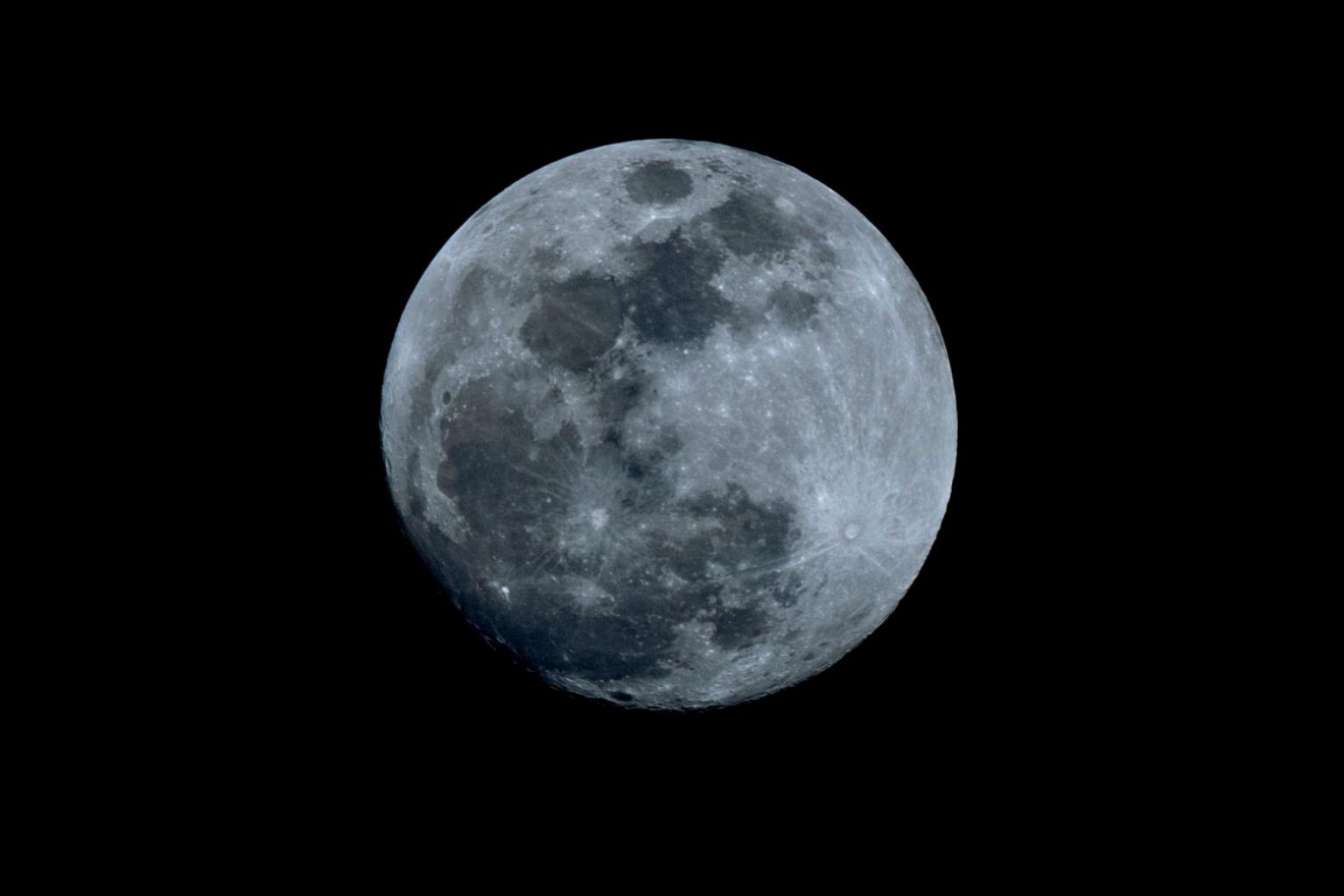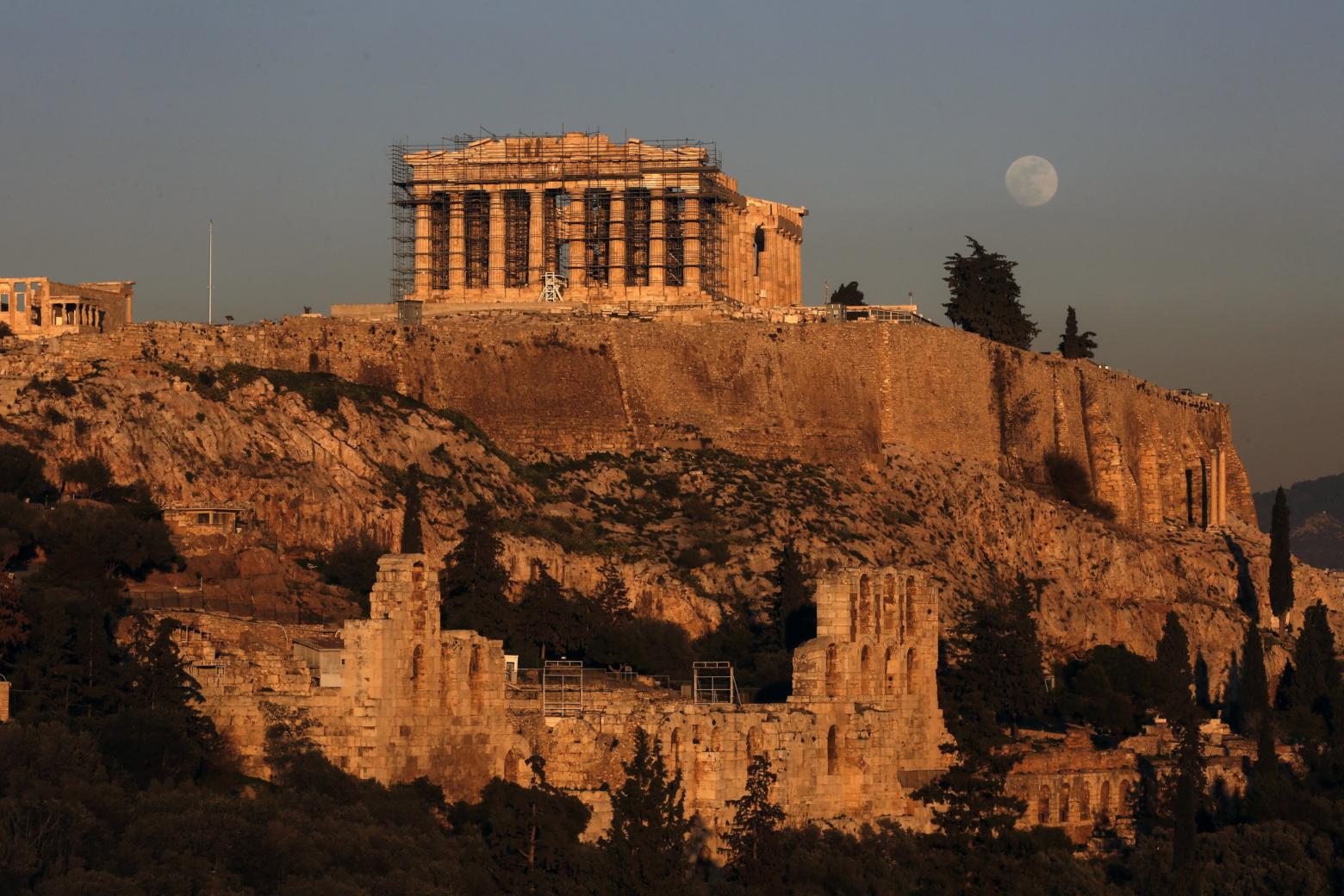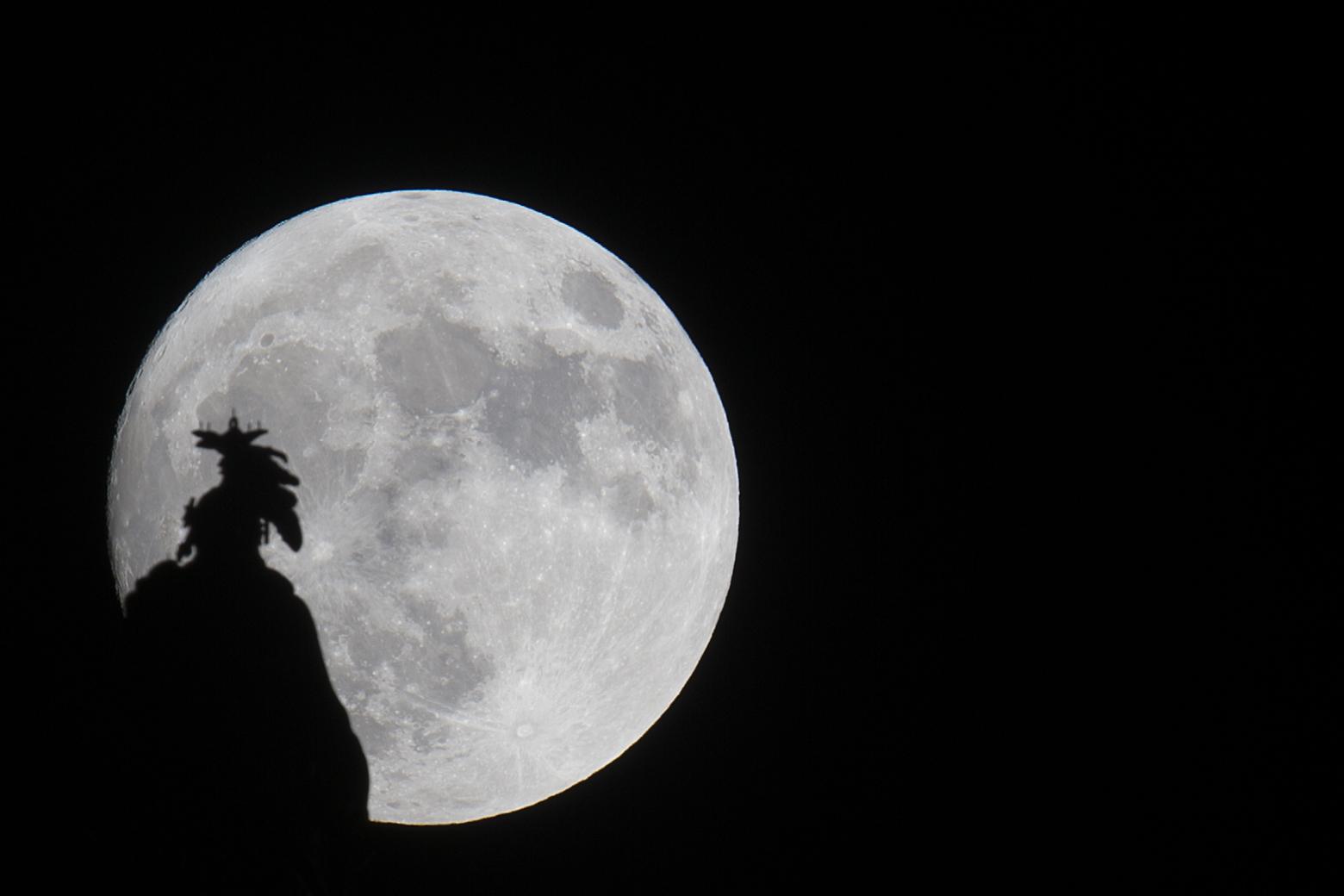Once in a blue moon: When and where you can catch the total lunar eclipse tonight
Sign up now: Get ST's newsletters delivered to your inbox

An almost full moon rising in the sky in a photo taken at Netanya in central Israel on Jan 30, 2018.
PHOTO: AFP
SINGAPORE - Astronomy enthusiasts are gearing up to catch a view of a rare astronomical event that will occur on Wednesday (Jan 31) night.
A lunar eclipse, a blue moon and a supermoon will occur simultaneously, in a coincidence that last happened almost 152 years ago in 1866.
Here's what you need to know.
1. What is it?
A lunar eclipse is when the moon enters the Earth's shadow. When there is a total lunar eclipse, the moon takes on a red colour and is known as a blood moon.
Because the full moon on Wednesday night will be the second full moon of the month, it is dubbed a blue moon. It does not appear blue, but is given the name for its rarity as it occurs once every two years and eight months.
As for the supermoon, the term refers to when a full moon coincides with the moon being the closest to Earth.
2. Why should you care?

The last blue moon took place on May 21, 2016, and the last total lunar eclipse that was visible in Singapore happened on April 4, 2015.
"After this year's total lunar eclipses, it will not be until three years later that we will be able to see another blood moon on May 26, 2021," said a Science Centre Singapore spokesman.
3. When does it start?

A partial eclipse will start at 7.48pm, while a full eclipse is expected at 8.51pm and last until 10.08pm.
The partial eclipse will end at 11.11pm.
4. Where is the best place to catch the eclipse?

A supermoon rising over the Statue of Freedom on the Capitol dome in Washington, DC.
PHOTO: AFP
The cosmic event will be visible in parts of western North America, the Middle East, Asia, eastern Russia, Australia and New Zealand.
In Singapore, the eclipse is best seen in an open field with a clear view of the eastern horizon, said Dr Cindy Ng of the National University of Singapore physics department.
It will be visible to the naked eye.
Unlike a solar eclipse, this lunar eclipse can be safely viewed without protective eyewear.
4. Are there any viewing sessions organised?
There will be a viewing session from 7.30pm to 10.30pm at the Science Centre Singapore at 15, Science Centre Road.
Admission to the event is free and registration is not required. Viewing will be on a first-come, first-served basis.
Other than watching the lunar eclipse, there will be free live planetarium shows about the moon at the OmniTheatre at the Science Centre, at 7.30pm and 8pm.
There will be telescopes set up on site for viewing the moon and also food vendors from Street Food Circus.
Bag checks will be conducted for safety reasons and the Science Centre advised attendees to travel light for quicker entry. The centre will not be able to accommodate private telescopes.
If it rains on that day, viewing will cease and resume if the rain stops by 9.30pm. It will end at 10.30pm, regardless.
Interest group Singapore Sidewalk Astronomy is also organising a gathering at Bishan-Ang Mo Kio Park from 7.30pm to 11pm, with more details on its Facebook page.
A group of volunteer stargazers will also be gathering at a field near the Marina South Pier MRT in an event that the public can join for free.
The volunteers will be setting up their telescopes and optical instruments at the location from 6.30pm. More details can be found here.
Some restaurants are also taking advantage of the cosmic event, with LeVel33 Craft-Brewery Restaurant & Lounge hosting a viewing session at its 33rd-storey Marina Bay Financial Centre location.


